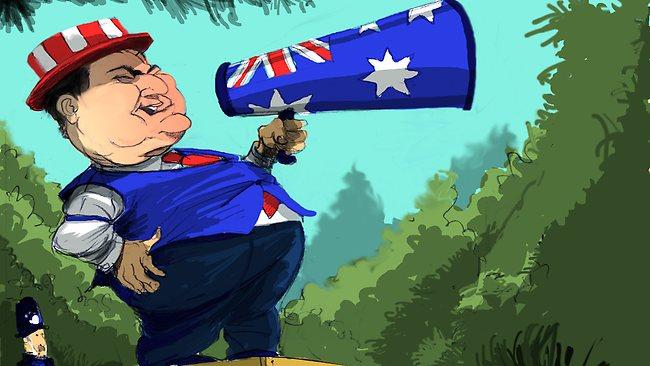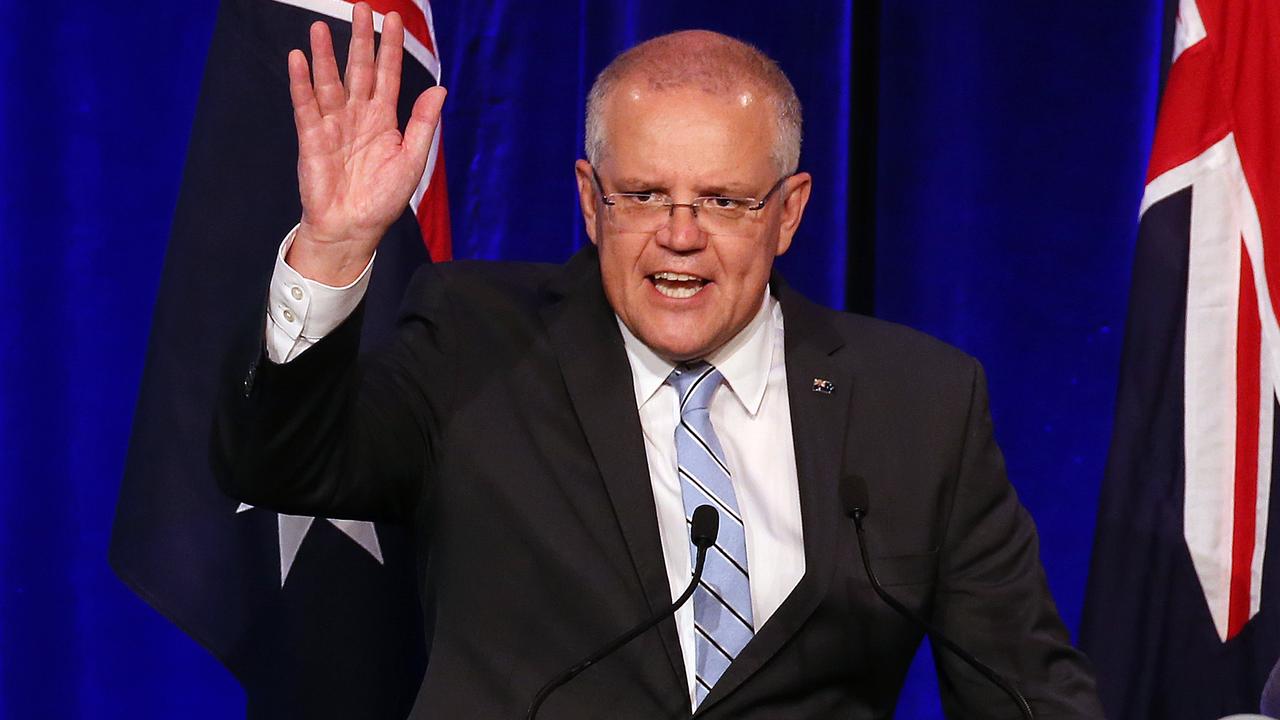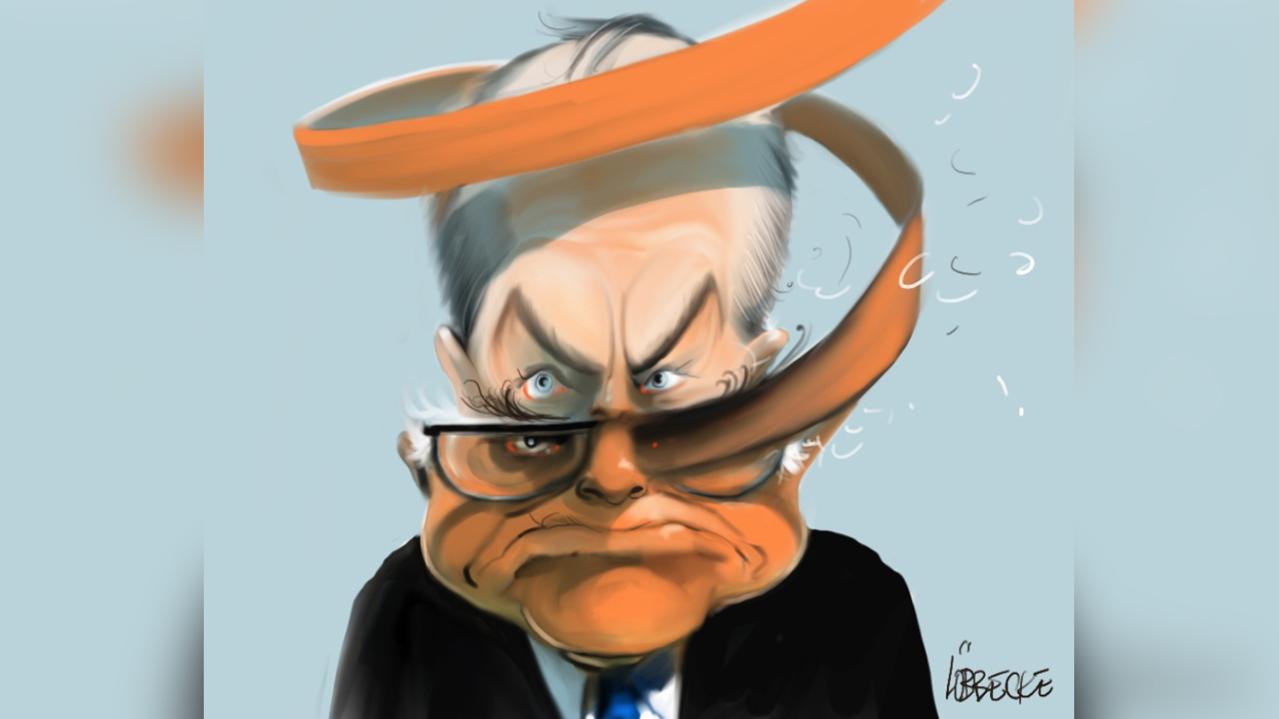Coalition should heed Hockey's welfare speech

JOE Hockey's "age of entitlement" speech to the Institute of Economic Affairs in London this week deserves a standing ovation. Because he is right. Western nations have lived above their means for too long. Where once the West exploited the East to boost prosperity (read colonialism) it now does so by borrowing from it.
The Asian Century demands that the West adjust its economic lens to stay (and in some cases become) competitive in an era it is losing control of. The challenges of ageing and rising healthcare costs (just for starters) are sapping Western governments of the revenue streams they need to boost productivity and infrastructure.
Importantly, Australia is not removed from this challenge. The fact we are better equipped to meet the challenge than our US and European allies (courtesy of low debt coupled with geographic and natural resource advantages) should not distract us from the domestic need to reframe Australia's cultural setting away from a handout mentality.
Modelling for the future dictates that even Australia will be overrun by fiscal challenges unless it recalibrates government spending. Labor claims that it is doing that by driving hard for a 2012-13 surplus after an expected $40 billion-plus deficit this financial year when the Treasurer hands down his budget in May. Hockey is calling for more than that. Not necessarily in monetary terms, remembering the arithmetic problems the Coalition has had making its policy priorities add up. He is calling for a change to the cultural setting of the nation; a reflection that a globalised world where prosperity is driven by Asia means the West must evolve or die.
The sentiments in the speech are heady. It is about time more than bit players within the main parties stuck their necks out and told the public how it is. The fact Hockey felt he should do it all the way from London speaks volumes about his expectation that a sympathetic domestic audience would be hard to find.
Of course the government has taken its short-term political opportunity to bash Hockey over the head, accusing him of wanting to cut pensions, Medicare, you name it. And why wouldn't it? The opposition has long put short-term political point scoring ahead of long-term policy planning when attacking this government. What goes around comes around, and it won't be any different if the Coalition wins government. All the more reason Hockey is right to start a debate now, with a view to securing a mandate for change ahead of polling day, thus blunting Labor attacks.
Without it, a do-something Coalition government would be attacked for broken election promises the same way the present government has been for the carbon tax backflip.
The door Hockey has opened for the government to turn the media's attention (and hopefully, from Labor's perspective, the public's too) on to the opposition is easily criticised as a political blunder. But making such an assessment depends on what one believes involvement in politics is all about.
What is the point of a Coalition victory next year if it involves removing one poor government and replacing it with another? Conservatives may argue the benefit is simply keeping Labor away from the Treasury benches. But that is partisan logic. Tony Abbott might lead a more competent administration that follows due process in a way this government has not (think the Auditor-General's report on the Australia Network tender). Might. But the bar needs to be set higher than that. The challenges we face demand it.
Hockey's speech is only the very first step on a long path towards reframing Australia's political culture. As yet we have no details how he plans to do that by ending the age of entitlement.
The speech offered many options for European leaders to follow: user-pays levies for healthcare, forced retirement savings and lifting the age at which retirement handouts can be accessed. But in this country those ideas are already part of the policy fabric. We have a Medicare rebate, compulsory super (which, incidentally, the Coalition has frequently opposed) and a plan to lift the retirement age from 65 to 67 in 2023.
A nation such as France must take note: its frontrunner in the presidential election is advocating cutting the age of the pension from 62 to 60. Ridiculous.
Far from an example of political ineptitude, Hockey's economic commentary from Europe should be seen as a political masterstroke, if the Coalition is going to do what the party of economic liberalism should.
The fear I have is that Abbott (and his closest ally, Barnaby Joyce) has no intention of following Hockey's script.
If Hockey wants his reframing of Australia's political culture to bite, he needs policies (and internal political consensus) to build on what we already have. And he needs to make the case in isolation of overseas woes. Because Australia is so much better off than the rest of the world, it is too easy for commentators and politicians alike to convince the public that we do not need to keep reforming (and tightening our belts) because our collapse point is far off.
A frog slow boiled suffers the same fate as one dropped in boiling water. Australia must ensure it doesn't slowly ebb towards fiscal decline.
Internally in the Liberal Party and in the media Hockey is wedged. If he supports his leader and defends profligate policy settings, thereby playing the team game, he gets carved up by the media and the government for economic incompetence. If he speaks out, implicitly against his leader, calling for an end to the age of entitlement, he gets hit over the head for political stupidity - jeopardising the polling dominance Abbott enjoys. It is a perfect catch-22.
We all know Hockey and finance spokesman Andrew Robb have made more than their fair share of gaffes. And Arthur Sinodinos and Malcolm Turnbull are wasted sitting outside the frontbench and the finance team respectively.
But Hockey and Robb are the only two senior frontbenchers cautioning against Abbott's natural tendency to spend first and think later. And as talented as Turnbull is, it is hard to see him using the treasury or finance portfolio as anything other than a step towards the leadership.
Democracy dictates that politicians have to take the people with them when setting policy scripts. Too often that means short-term populism trumps long-term best interests. Now is a unique moment in Australian politics: the government is in crisis and hence electorally vulnerable. It provides the opposition with the opportunity to set out an agenda that is unpopular but necessary, and still win the election. Never waste a crisis. If the Coalition wastes this one it will still be elected, probably with a greater majority - but without the mandate it needs to be a good government.
Peter van Onselen is a Winthrop professor at the University of Western Australia.


